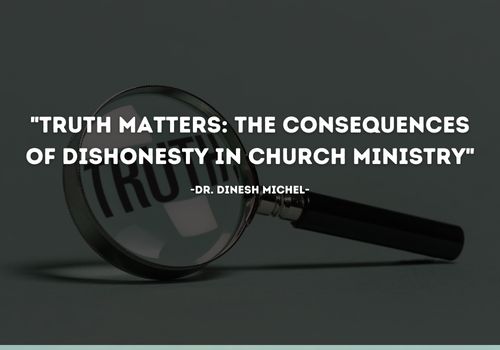In the sacred realm of church ministry, honesty and integrity form the bedrock of trust within a community. However, just like any other sphere of life, instances of dishonesty can infiltrate even the most well-intentioned congregations. In this article, I aim to shed light on the phenomenon of people in church ministry lying and the far-reaching consequences it can have on both individuals and the community as a whole.
Betrayal of Trust:
Trust is the currency of any ministry. Congregants look to their leaders not just for spiritual guidance but also as moral compasses. When those in leadership positions are found to be dishonest, it shatters the trust that has been painstakingly built over time. Congregants may feel betrayed, questioning the authenticity of the message and the integrity of the messenger.
Erosion of Credibility:
Credibility is the foundation upon which effective ministry stands. When leaders are caught in lies, their credibility crumbles. Congregants may question the authenticity of the teachings, leading to a decline in the impact of the ministry. The erosion of credibility not only affects the individual involved but can tarnish the reputation of the entire ministry.
Opens a door for demonic influence:
Ephesians 4:25 emphasizes the importance of truthfulness. The concept suggests that dishonesty creates a spiritual vulnerability, allowing negative spiritual forces to operate. Adherents to this perspective view truthfulness as a safeguard against such influences, striving to maintain a spiritual environment that resists harm.
Stifled Spiritual Growth:
People attend church seeking spiritual nourishment and growth. Dishonesty within the ministry creates an atmosphere of skepticism and hinders the spiritual development of congregants. The disillusionment caused by discovering lies can lead to a sense of spiritual stagnation or even departure from the faith community altogether.
Damage to Relationships:
Churches are more than just places of worship; they are communities built on relationships. When leaders lie, it damages the fabric of these relationships. Congregants may find it challenging to connect with each other when trust in leadership is compromised. The sense of unity and shared purpose can be replaced by suspicion and division.
Strained Leadership Dynamics:
Dishonesty among leaders can create tension and division within the leadership team. The strain on leadership dynamics can hinder effective decision-making and unity in pursuing the church’s mission.
In conclusion, the consequences of dishonesty within church ministry are multifaceted and impactful. Leaders must recognize the weight of their responsibility, not only in delivering spiritual guidance but also in upholding the principles of truth and integrity. By fostering a culture of transparency and accountability, churches can build a foundation that withstands the storms of mistrust, promoting a thriving and authentic community.


